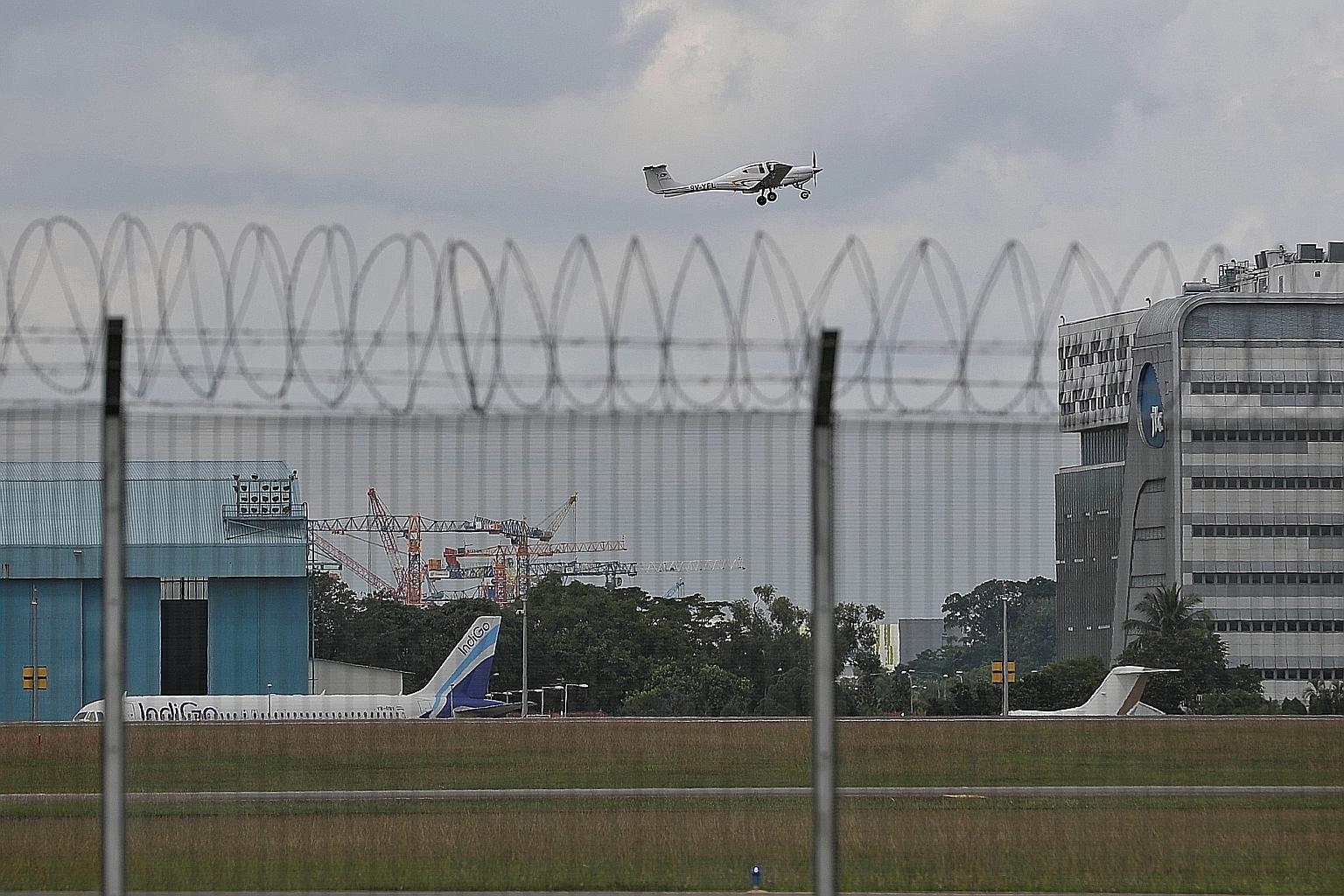Parliament: Vivian Balakrishnan debunks Malaysia's claims that Seletar ILS will affect Pasir Gudang
Sign up now: Get ST's newsletters delivered to your inbox

The new Instrument Landing System (ILS) uses the exact same flight path that aircraft landing at Seletar Airport (left) have used all along for visual flights. The only difference is with ILS, pilots can land even in bad weather, says Foreign Minister Vivian Balakrishnan.
ST PHOTO: KEVIN LIM
Malaysia's allegations that introducing an aircraft landing system at Seletar Airport would affect the development of nearby Pasir Gudang town are untrue, Foreign Minister Vivian Balakrishnan said.
In debunking the claims in Parliament yesterday, he said the new Instrument Landing System (ILS) uses the exact same flight path that aircraft landing at Seletar have used all along for visual flights.
The only difference is with ILS, pilots can land even in bad weather.
The disagreement over flight procedures for Seletar Airport is part of an air dispute that includes Malaysia wanting to take back management of airspace over south Johor, a task delegated to Singapore.
Both countries' transport ministers have agreed to meet later this month for further discussions, Dr Balakrishnan said.
On Malaysia's protest on the ILS, he said: "There were allegations that Pasir Gudang will not be able to have buildings taller than five storeys because of ILS, but if members cross the Causeway and drive around Pasir Gudang, you will see there are already structures as tall as 105m there (taller than many HDB blocks)," he added.
Showing the House a satellite photograph, he pointed to several existing high-rise developments in the Pasir Gudang area.
Ultimately, he said, the aim of the ILS procedures is to improve safety and facilitate flights, in this case especially for Malaysia's Firefly. The airline, which had earlier agreed to move its operations to Seletar Airport on Dec 1 last year, had informed the Civil Aviation Authority of Singapore (CAAS) that Malaysia's civil aviation authority required Malaysian carriers to operate only to airports with an instrument approach.
"Ironically, CAAS was trying to facilitate Firefly's operations at Seletar by installing the ILS, which Malaysia has now objected to," Dr Balakrishnan said.
Amid the tensions, the Malaysian civil aviation authority declared on Dec 25 a permanent restricted area in the airspace over Pasir Gudang for the purpose of military activities, with effect from Jan 2. What it meant was that flights from any country, including Malaysia, would need the prior approval of the Royal Malaysian Air Force to operate in that zone between 2,000 ft (610m) and 5,000 ft.
Malaysia's action contravened established International Civil Aviation Organisation (ICAO) procedures, Dr Balakrishnan said.
"CAAS, as the air traffic services provider for the area, was neither informed nor consulted even though these actions affected civil aviation operations out of Seletar Airport, cut through an established international aviation route, and affected flight efficiency and safety," Dr Balakrishnan stressed.
At last week's meeting between the two countries' foreign ministers, both sides agreed that while Singapore would suspend the implementation of the ILS procedures for Seletar Airport, Malaysia would also suspend the permanent restricted area. They will do it for one month in the first instance.
The mutual suspension, which went into effect at midnight on Jan 9, allows for normal operations to resume at Seletar Airport, Dr Balakrishnan said.
"Unfortunately, Malaysia's Firefly will still be unable to start operating at Seletar due to its Malaysian regulator's requirement," he added.
Apart from the ILS issue, Malaysia has said that it intends to review the 1974 Operational Letter of Agreement on airspace arrangements in southern Johor.
The agreement says that Singapore will manage the airspace which covers the Pasir Gudang area.
Singapore had said that it would review the proposal after receiving it.
Dr Balakrishnan said: "Such discussions on air navigation arrangements involve consultations with international stakeholders, and cannot be done overnight.
"In the meantime, in the interest of civil aviation safety, air traffic operations must continue according to current arrangements, and in accordance with ICAO requirements."


